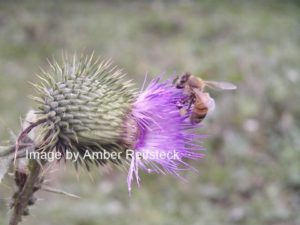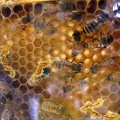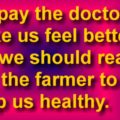Be Bee Friendly

Without bees there is no pollination, and without pollination, there is no food. Be Bee Friendly.
Colony Collapse Disorder is a problem talked about a lot among beekeepers. No one knows the cause of it, and therefore, no one knows how to fix the problem. But a problem is exactly what it is. For reasons unknown, the bees will suddenly lose their sense of how to return to the hive. Without the hive, the bees die, and without the bees returning, the hives die. Hence the colony of bees collapses.
Colony Collapse Doesn’t Just Affect Beekeepers
Outside of the beekeeping community, colony collapse isn’t always widely talked about, and many people believe that colony collapse disorder doesn’t affect them. Nothing could be further from the truth, however, as bees feed us all. They are the primary source of pollination for many of the world’s main food crops. Without bees there is no pollination, and without pollination, there is no food.
While there is not yet a known cause for colony collapse disorder, there are things we can do to help bees. First and foremost, don’t kill honeybees. Killing members of an endangered species (exactly where honeybees are heading toward if something doesn’t change) only weakens the group further. A single honeybee can carry up to 100,000 grains of pollen in a trip. Killing even one bee makes the hive sacrifice that 100,000 grains of pollen and thus the honey that would have been made from it.
Don’t Spray – Call The Bee Collectors
During the spring, when the hives separate and swarm off, many unhappy people find themselves host to a swarm of hundreds of bees trying to make a nest in their house. Once again, do not spray these bees! Instead, call around the community looking for people who collect bees.
You can even post ads on sites like craigslist offering free bees to anyone who wants to come and get them. In most communities there are bee groups with people who go out every weekend collecting renegade swarms. They are more than happy to remove them from your property for you.
Plant More Flowers
Another way to help bees is to plant flowers that are attractive to bees, giving them an ample food supply. Asters, sunflowers, hollyhocks, crocuses, roses, blackberries, pumpkins, lavender, butterfly bush, and honeysuckle to name a few are all bee-friendly plants.
Having an available water source is always a boost for them as well. The main staple food in most bees’ diets, however, is clover. As such, a person wanting to help bees should never spray their lawn. Not only are the toxins themselves a danger to bees, but spraying kills all the clover that the bees so greatly need.
Raise Bees
If you want to take it a step further, consider actually raising bees. Not only does it produce a sweet treat for you, it helps increase bee populations. If the thought of raising bees and collecting honey is less than thrilling to you, consider raising bees for the sake of the bees. This is probably one of the healthiest ways to raise bees. In this method there is no profit of honey sought, a person simply gets the bees, gives them a home, and leaves them alone, letting them live as though they were completely wild.
Last but not least, even if raising bees yourself is out of the question, you can always support those who do raise bees by purchasing local honey. Not only does this keep people raising bees, it is also a healthy alternative to store bought honey. Due to the local pollen that the bees put into local honey, it can also helps reduce the symptoms for people who suffer from seasonal allergies. Buy local, be bee friendly.
By Amber Reifsteck, The Woodland Elf
The information provided on this website is for general information purposes only. If you choose to rely on the information on this website, you do so at your own risk and you assume responsibility for the results. (Full disclaimer here)
Enjoy this post? Click here to subscribe by email and get new posts delivered to your inbox.Ads by Google






